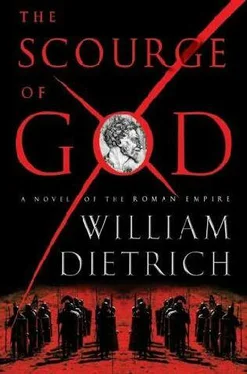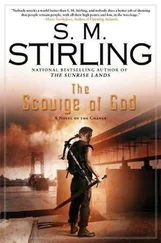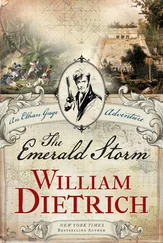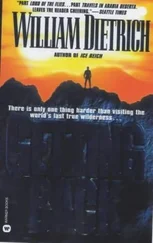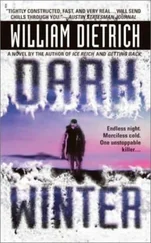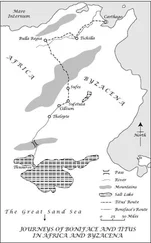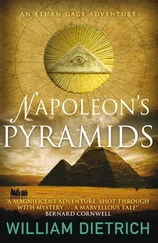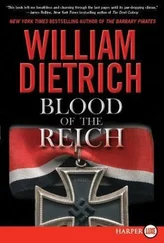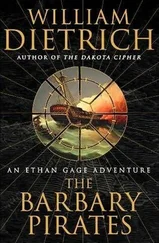William Dietrich - The Scourge of God
Здесь есть возможность читать онлайн «William Dietrich - The Scourge of God» весь текст электронной книги совершенно бесплатно (целиком полную версию без сокращений). В некоторых случаях можно слушать аудио, скачать через торрент в формате fb2 и присутствует краткое содержание. Жанр: Фэнтези, на английском языке. Описание произведения, (предисловие) а так же отзывы посетителей доступны на портале библиотеки ЛибКат.
- Название:The Scourge of God
- Автор:
- Жанр:
- Год:неизвестен
- ISBN:нет данных
- Рейтинг книги:5 / 5. Голосов: 1
-
Избранное:Добавить в избранное
- Отзывы:
-
Ваша оценка:
- 100
- 1
- 2
- 3
- 4
- 5
The Scourge of God: краткое содержание, описание и аннотация
Предлагаем к чтению аннотацию, описание, краткое содержание или предисловие (зависит от того, что написал сам автор книги «The Scourge of God»). Если вы не нашли необходимую информацию о книге — напишите в комментариях, мы постараемся отыскать её.
The Scourge of God — читать онлайн бесплатно полную книгу (весь текст) целиком
Ниже представлен текст книги, разбитый по страницам. Система сохранения места последней прочитанной страницы, позволяет с удобством читать онлайн бесплатно книгу «The Scourge of God», без необходимости каждый раз заново искать на чём Вы остановились. Поставьте закладку, и сможете в любой момент перейти на страницу, на которой закончили чтение.
Интервал:
Закладка:
and the mounted warriors laughed, drawing and firing almost faster than the eye could see. He sat down heavily, as spiny as an urchin.
“Kill them all,” Edeco ordered.
“Not the girl,” a young Hun said. He leaned to scoop her up and throw her shrieking across the front of his saddle.
“Let me go to my father!”
He bound her hands. “Do you want to end like them?” he asked in Hunnish.
The rest of Simon’s party were shot down as they made for the corners of the forum. Any wounded were chopped as they begged. The conflagration at the church had become so fierce that its roaring finally drowned out the screams of the dying inside, and their souls seemed to waft upward with the heat, the illumination joining an eastern sky that was now lightening. As lines of stunned captives began to appear from other parts of the city, looped with line like a train of donkeys, the church’s walls caved in.
Ilana was sobbing, so choked with sorrow that she could scarcely breathe, her body splayed across the horse’s shoulders and the Hun’s muscled thighs, her hair hanging down in a curtain, exposing the nape of her neck. So why wouldn’t he kill her, too? The nightmare seemed to have no end, and her father’s treachery had been useless. Everything of her old life had been burnt and yet she, cruelly, was still alive.
“Stop crying,” the young Hun ordered in words she could not understand. “I have saved you.” She envied the dead.
Edeco led them out of the city he had destroyed, its memories a column of smoke. The besieged always opened the gates in the end, he knew. Someone always hoped, vainly and against all history and reason, that there was a chance he might be spared if he treated with an invader. The Huns counted on it. He turned to the lieutenant who carried the trussed Ilana, a warrior named Skilla. “Attila would have enjoyed this night, nephew.”
“As I’ll enjoy the coming one.” His right hand was on the captive’s waist, pinning her as she squirmed. Her thrashings made Skilla want to take her right there. What a fetching rump she had.
“No.” His uncle shook his head. “That one is too fine. We carry her back to Attila, for judgment to be made there.”
“But I like her.”
“She is Attila’s to assign. Yours to ask for.” The younger man sighed and looked back. He had ridden before he had walked; fought since he was a toddler; hunted, pursued, and killed. Still, this was his first sacking, and he wasn’t used to the slaughter. “The ones in the church . . .”
“Would make pups to rebuild the walls.” Edeco sniffed the smoke, roiling to blot out the rising sun. “This is a good thing, Skilla. Already the land breathes free.”
III
CONSTANTINOPLE, A.D. 450
It was easier to buy a Hun than kill him, and easiest to buy those Huns who knew there are things worth a coin.
At least that was the theory of Chrysaphius, chief minister to the emperor of the Eastern Roman Empire, Theodosius II. Chrysaphius had been urging his emperor to pay tribute to the Huns for a decade now, because the thousands of pounds of gold sent north had forestalled a final assault on Constantinople. However humiliating, submitting to extortion was cheaper than war. The government pretended its payments were for a barbarian ally, similar to what the Western emperors sent the Franks, but this fiction for the masses fooled no one in authority. Now Attila’s demands were rising, the treasury was strained, the Byzantine army was pre-occupied with Persia, voices in court were muttering against the minister’s craven appeasement, and somehow the tribute had to end. Accordingly, Chrysaphius wanted to buy one Hun in particular, for a very specific purpose. He sent his minion Bigilas to begin to do it.
“Show this Edeco our great Nova Roma, translator,” the minister had said while dissecting a Galatian pear with a silver knife. “Show him our wealth and our walls and our power, and then bring our unwashed guest to my palace and show him me.”
Several months after the sack of Axiopolis, the Hun general Edeco had been sent south to Constantinople to press Attila’s demands that the terms of the Treaty of Anatolius, negotiated two years before, be fulfilled. The Byzantines were slow to pay all the gold they had promised, and the swelling Hun armies had a tireless appetite for the metal.
Chrysaphius hoped to turn this new barbarian envoy from tormentor to ally.
The meeting did not begin auspiciously. Bigilas had to go to meet the Hun delegation outside the city by the Golden Gate, since the barbarians refused to venture inside without a guide. The translator found himself squinting up at the man he had been instructed to impress. Though Bigilas arrived with bodyguard, personal chamberlain, and a slave to hold his parasol, he was on foot and the Huns were mounted; and the warriors had maneuvered their beasts so their backs were to the sun that shone in the Roman’s eyes.
Yet Bigilas dared not complain. The haughty barbarian was not just key to his master’s hopes but dangerous if offended.
If Edeco didn’t return to Attila with satisfying answers, war might resume.
For his part, Edeco considered this mission between campaigns as an opportunity for easy profit, regardless of treaty gabble. The Romans always tried to soothe the Huns with gifts, and so this visit was a reward to Edeco for the capture of Axiopolis and an opportunity to examine the capital’s more intimidating defenses. Someday, the Hun hoped, he would do to Constantinople what he had done to Ilana’s city.
As Bigilas expected, Edeco was dusty from the long journey but far from ragged. The rabbit skins that his people had first appeared in had long been supplanted by bear, fox, and sable; and crude leather jerkins had been tossed aside for captured mail and padded tunics. Silks and linens that would adorn a Roman girl’s breast were apt to peek from behind a lorica because the Huns had a childlike fascination with fin-ery and no knowledge of proper fashion. Nor were they at all self-conscious. It was the People of the Dawn who decided how lords should dress, and everyone else knelt before them.
Like all the Huns, Edeco looked as comfortable on horseback as a Roman at ease in a chair. He was short but powerful, with a long sword hanging from his waist, a short bow strapped to his saddle, and a quiver full of arrows on his back. Also, like all the Huns, he was ugly-at least to Roman eyes. His skin had the bronze cast of the East and the ruggedness of leather, and his cheeks were corrugated with ritual scars. Many Romans believed the common story that the Huns cut their boys at birth to teach them to endure pain before letting them suckle, but Bigilas knew the puckering was more likely the result of self-mutilation from mourning a close relative. Most adult Hun men, and many women, had such scars.
Edeco’s manner exuded menace, like a low criminal; and his expression seemed fixed in a permanent scowl, given emphasis by a thin mustache that curled downward. Yet he was a calculating brute, the translator guessed, who killed and stole with predatory intelligence. That meant he could be reasoned with. Or so master Chrysaphius hoped.
The Hun was not looking at Bigilas, who he knew was a bureaucrat of minor status, but at the triple walls of Constantinople that stretched four miles from the Sea of Marmara to the harbor known as the Golden Horn. His was a soldier’s gaze, trying to guess a way through or around the barrier. The height of the walls, one hundred feet, astounded him.
“The minister Chrysaphius invites you to supper,” Bigilas said now in the guttural tongue the Hun spoke. Compared to Greek or Latin, it sounded like the grunting of animals.
Читать дальшеИнтервал:
Закладка:
Похожие книги на «The Scourge of God»
Представляем Вашему вниманию похожие книги на «The Scourge of God» списком для выбора. Мы отобрали схожую по названию и смыслу литературу в надежде предоставить читателям больше вариантов отыскать новые, интересные, ещё непрочитанные произведения.
Обсуждение, отзывы о книге «The Scourge of God» и просто собственные мнения читателей. Оставьте ваши комментарии, напишите, что Вы думаете о произведении, его смысле или главных героях. Укажите что конкретно понравилось, а что нет, и почему Вы так считаете.
